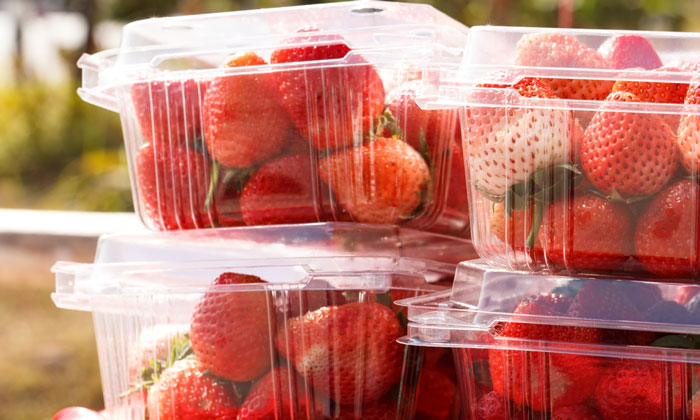Sustainable packaging: A necessity in the fight against a pollution crisis
- Like
- Digg
- Del
- Tumblr
- VKontakte
- Buffer
- Love This
- Odnoklassniki
- Meneame
- Blogger
- Amazon
- Yahoo Mail
- Gmail
- AOL
- Newsvine
- HackerNews
- Evernote
- MySpace
- Mail.ru
- Viadeo
- Line
- Comments
- Yummly
- SMS
- Viber
- Telegram
- Subscribe
- Skype
- Facebook Messenger
- Kakao
- LiveJournal
- Yammer
- Edgar
- Fintel
- Mix
- Instapaper
- Copy Link
Posted: 28 June 2017 | New Food, Paul Foulkes-Arellano | No comments yet
A Plastic Planet, a grassroots UK-based organisation with a single aim – a Plastic Free Aisle in supermarkets – offers an insight into the necessity of sustainable packaging to fight food waste and pollution.


UK packaging firms lead the world when it comes to innovation. In recent decades, we’ve seen game- changing improvements in packaging efficiency, with more and more lightweight solutions brought to market.
As a result of sustained R&D investment, packaging firms have both reduced the environmental impact of their product offering and slashed costs throughout the supply chain.
The changing profile of plastic packaging in recent years has been dramatic. PET plastic bottles are 30% lighter than 15 years ago. And on the back of decades of work to promote slimline packaging, plastic on average accounts for only 1-3% of the total weight of UK food and drink products.
The industry should be commended for its progress thus far. But it is far from ‘mission accomplished’ for the UK’s packaging manufacturers.
Across the globe, we still dump around 8 million tonnes of plastic waste into oceans each year. Every minute we dump the equivalent of one garbage truck’s worth of plastic into global seas. In some areas of the South Pacific, plastic debris is thought to outnumber plankton by a ratio of six to one. The pollution problem shows no sign of going away any time soon however, with plastic taking an average of 400 years to degrade in water.
The consequences for wildlife can be deadly. Thousands of seabirds and sea turtles, seals and other marine mammals are killed each year after ingesting plastic or getting entangled in it. Endangered wildlife like Hawaiian monk seals and Pacific loggerhead sea turtles are among nearly 300 species that eat and get caught in plastic litter. Dissections of deceased sperm whales often reveal their stomachs to be clogged with plastic debris.
The consequences for wildlife can be deadly.
There is a growing body of evidence to suggest we should worried about the effect of plastic litter on human health too. Around a third of fish caught off the coast of South West England are thought to contain plastic traces, with seafood eaters at risk of ingesting toxic debris.
Recycling is often touted as the answer to the pollution problem, and it’s clear that UK packaging firms have made impressive progress in this area.
Plastic products are made up of more recycled material than ever before, and we’ve seen sustained industry investment in recycling capacity for plastics. But UK consumers have failed to take up the mantle in the way that their counterparts on the continent have. Despite a concerted attempt by central government and local authorities to foster a pro-recycling culture, only a third of plastic waste is recycled in the UK.
The answer then is clear. While plastic is a great material, we need to be much smarter about what we package our food and drink products in.
We need to be much smarter about what we package our food and drink products in.
This year I joined forces with campaign group A Plastic Planet. Its mission is to give consumers the chance to choose more sustainable packaging options when they shop for food and drink. The group is aiming to secure a Plastic Free Aisle in supermarkets, which would feature products packaged in alternative materials such as aluminium and sustainable plant-based materials rather than fossil fuel-based plastics destined for landfill.
A Plastic Planet wants to work with the packaging industry and supermarkets to provide more sustainable alternatives to goods laden with single-use plastic. With an unrivalled capacity for innovation, we think the packaging industry is ideally placed to realise our vision of a more sustainable future for food and drink in the UK.
With plastic pollution reaching endemic levels, it is incumbent on all of us to work together to find a better way forward.
Paul Foulkes-Arellano is Head of Retails Solutions at A Plastic Planet and Precipice Design Head of Client Programmes
Related topics
Food Waste, Packaging & Labelling, Research & development, Sustainability, The consumer










